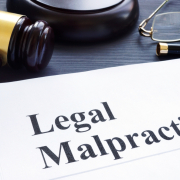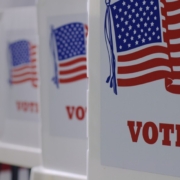Fraud in NYC’s Matching Funds System: A Critical Analysis
By Esther Claudette Gittens | Editorial credit: Cinemato/ shutterstock.com
The NYC matching funds system was established with the noble goal of enhancing democracy by reducing the influence of wealthy donors and empowering small contributors. However, the system has been plagued by fraud, both detected and undetected, largely due to weak internal controls, inadequate auditing practices, and a lack of accountability among elected officials. Read more at www.askthelawyer.us. To read the complete analysis in our publication, click here, and on our civil rights blog, click here.
The New York City Campaign Finance Program (CFP) is intended to level the playing field in elections by providing matching funds to candidates who agree to abide by spending limits and other regulations. The system has been hailed as a progressive solution to reduce the influence of large donors and enhance the voice of the average voter. However, recent investigations and analyses indicate that the system has become vulnerable to fraud and misuse by both the current mayor and other officials, raising serious questions about its efficacy and integrity. This analysis explores the fraudulent activities, both detected and undetected, within the NYC matching funds system, the flaws in the auditing and internal control mechanisms, and the broader implications for the city’s governance. Ultimately, it argues that the system should be scrapped or overhauled given the lack of accountability and the disregard shown by elected officials toward taxpayers.
The NYC Matching Funds System: An Overview
The NYC matching funds system, administered by the NYC Campaign Finance Board (CFB), matches small contributions to participating candidates at a rate of $8 for every $1 raised from eligible NYC residents. This initiative was designed to amplify the voices of ordinary New Yorkers and reduce candidates’ dependence on wealthy donors. The system aims to democratize the electoral process by encouraging grassroots campaigns.
Despite its noble goals, the system is prone to exploitation, primarily because of inadequate oversight, poor auditing practices, and weak internal controls. Numerous cases of fraud have surfaced in recent years, and there is a growing body of evidence suggesting that many fraudulent activities remain undetected.
Fraud Detected in the NYC Matching Funds System
The Current Mayor’s Campaign
Fraud in the NYC matching funds system has reached the highest levels of city government. The current mayor’s campaign is a case in point. Allegations have surfaced that the mayor’s campaign misrepresented contributions to qualify for matching funds. These alleged fraudulent activities include:
- Fake Donors: Investigations have revealed that several donors listed in the mayor’s campaign disclosures were either non-existent or unaware that their names had been used to make contributions. Some donors were found to have made multiple small contributions under different identities, suggesting an organized effort to inflate donation numbers to trigger matching funds.
- Straw Donors: Reports have surfaced that some of the mayor’s campaign contributors were reimbursed for their donations, a practice known as “straw donor” schemes. This tactic enables campaigns to meet matching fund requirements fraudulently by disguising larger contributions as smaller, individual donations.
- Misreported Contributions: Other cases involved misreported donations, where amounts were deliberately misstated to maximize matching fund eligibility. For instance, contributions from non-city residents were misreported as coming from NYC residents, thereby making them eligible for matching funds.
- Use of City Resources: Allegations have also arisen that the mayor’s campaign improperly utilized city resources and personnel to aid in fundraising efforts, which is strictly prohibited by campaign finance laws.
Other Elected Officials
The mayor is not the only figure implicated in matching funds fraud. Several other elected officials have faced accusations of fraudulent activities, including:
- Ghost Campaigns: Some candidates have been found to run “ghost campaigns” with little or no actual campaigning, yet they collect significant amounts of matching funds. These candidates are accused of inflating expenses and donor numbers to meet the threshold for public funds while not genuinely competing in the race.
- Misuse of Funds: Other officials have been caught misusing campaign funds by funneling money into personal expenses or paying inflated prices to friends and family members for campaign-related services. The lack of effective oversight has allowed these practices to go undetected for extended periods.
- Collusion with Donors: In some cases, there has been evidence of collusion between candidates and donors, where donors are pressured or incentivized to make multiple small contributions under different names to ensure the candidate receives matching funds.
Undetected Fraud: The Tip of the Iceberg
While several high-profile cases of fraud have been uncovered, experts believe that much of the fraud within the NYC matching funds system remains undetected. The sheer complexity of campaign finance, combined with limited auditing capacity and oversight, creates ample opportunities for candidates to manipulate the system without detection. Key factors contributing to the undetected fraud include:
- Weak Internal Controls: The CFB’s internal controls are widely considered insufficient to detect sophisticated fraud schemes. There is little to no real-time monitoring of contributions, and the board relies heavily on self-reporting by campaigns. This lack of proactive oversight allows fraudulent activities to go unnoticed for extended periods.
- Inadequate Auditing Practices: While the CFB conducts post-election audits of campaign spending and donations, these audits are often delayed, superficial, or limited in scope. The board has a small staff and limited resources, which hampers its ability to conduct thorough audits. As a result, many fraudulent activities remain undetected.
- Limited Transparency: The campaign finance process lacks transparency in certain areas, which makes it difficult for watchdog groups and the public to hold candidates accountable. For instance, the details of internal audits are not always made public, and the CFB’s investigation processes are often opaque.
- Political Pressure: The CFB operates in a highly politicized environment, where there is often little incentive to pursue aggressive investigations against powerful incumbents or influential candidates. This political pressure can result in lenient enforcement and a reluctance to fully investigate potential fraud.
The Case for Scrapping the NYC Matching Funds System
Given the widespread fraud and the city’s failure to properly audit and control the matching funds system, many argue that the program should be scrapped altogether. Several key points support this position:
- Erosion of Public Trust: Fraud within the matching funds system erodes public trust in the electoral process. When candidates manipulate the system to gain an unfair advantage, it undermines the integrity of elections and fosters cynicism among voters. The matching funds program, which was intended to empower ordinary voters, has instead become a tool for dishonest candidates to exploit.
- Waste of Taxpayer Money: The matching funds system has resulted in significant waste of taxpayer money. Millions of dollars have been diverted to fraudulent campaigns, with little to no benefit to the public. At a time when the city faces budget shortfalls and financial strain, it is irresponsible to continue funding a program that is so vulnerable to abuse.
- Lack of Accountability: The current system allows candidates to engage in fraudulent activities with little fear of accountability. Even when fraud is detected, penalties are often minimal, and the public funds are rarely recouped. This lack of accountability emboldens candidates to continue exploiting the system.
- Failure of Oversight: The CFB has proven incapable of effectively overseeing the matching funds system. Its limited resources, delayed audits, and susceptibility to political pressure make it ill-equipped to prevent or detect fraud. Without significant reforms, the system will continue to be a magnet for abuse.
- Alternatives Exist: There are alternative models of campaign finance reform that could achieve the same goals without the vulnerabilities of the matching funds system. For example, publicly funded vouchers or grants could be distributed directly to voters, allowing them to allocate funds to the candidates of their choice. Such a system would reduce the incentives for fraud and empower voters directly.
Conclusion
The NYC matching funds system was established with the noble goal of enhancing democracy by reducing the influence of wealthy donors and empowering small contributors. However, the system has been plagued by fraud, both detected and undetected, largely due to weak internal controls, inadequate auditing practices, and a lack of accountability among elected officials.
The current mayor’s campaign and several other officials have exploited the system, misrepresenting contributions, engaging in straw donor schemes, and misusing public funds. Despite the fraud that has been uncovered, many experts believe that the true extent of the fraud remains hidden due to the city’s inability to effectively audit and monitor the program.
Given the widespread abuse and the lack of effective oversight, there is a strong case for scrapping the NYC matching funds system altogether. The program has become a significant drain on taxpayer money, and its continued existence threatens the integrity of the city’s elections. Without proper internal controls and a commitment to accountability, the matching funds system will remain a vehicle for fraud, benefiting dishonest candidates at the expense of the public trust.
In conclusion, New York City must prioritize the implementation of more effective, transparent, and accountable systems of campaign finance if it hopes to restore faith in its democratic processes. Only then can the city move toward a system that truly empowers voters and ensures that their tax dollars are used responsibly.












Leave a Reply
Want to join the discussion?Feel free to contribute!